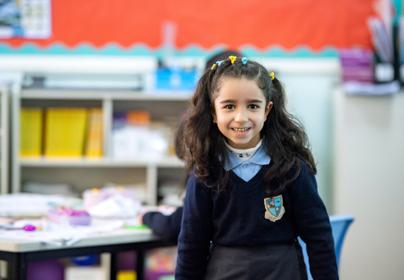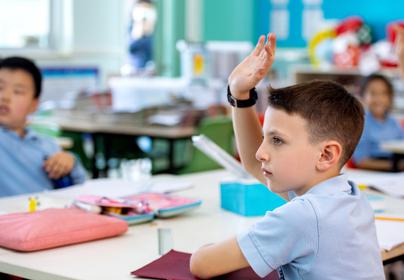In the Early Years Foundation Stage (EYFS), play is a fundamental aspect of children's development, fostering growth in enjoyable and inquisitive ways. The nature of play varies significantly depending on age, situations, and environments. All types of play are encouraged and valued, each contributing unique skills and behaviors essential for holistic development.
Parallel play occurs when children play alongside one another without direct interaction. At Britannica International School, you might find children sitting next to each other at a sensory table filled with sand and water. Each child may be focused on their own task—one building a sandcastle while another pours water into a cup. This type of play is crucial as it helps children learn about social boundaries and develop comfort in a group setting, laying the foundation for future interactions.
Schema play involves children engaging repeatedly in activities that reflect specific patterns of thought and behavior. For example, a child fascinated by the 'transporting' schema may spend time moving toy cars from one area to another or transferring blocks between containers. By encouraging activities like these, we help children explore concepts of movement and change. This repetitive engagement is vital for cognitive development, allowing children to make sense of the world through experimentation and discovery.
Group play, or cooperative play, involves children interacting with each other to achieve a common goal. In our role-playing area, children often engage in imaginative scenarios, such as pretending to run a restaurant. They take on various roles—chef, waiter, customers and work together to create a fun experience. This type of play is essential for social and emotional development, as it teaches vital skills like sharing, communication, and teamwork.
Additional types of play include symbolic play, where children use objects to represent something else, such as using a banana as a phone during playtime. At Britannica, we encourage this through storytelling sessions where children act out their favorite tales.
Physical play involves using large muscle groups and is often seen in outdoor settings. Our playground is designed to promote physical activity, allowing children to climb, jump, and run, enhancing their gross motor skills. Creative play allows children to express themselves through art, music, and movement. In our art classes, children use various materials to create their masterpieces, fostering creativity and self-expression.

Each type of play in EYFS offers unique opportunities for learning, contributing to the development of well-rounded, confident young learners. By providing diverse play experiences, Britannica International School nurtures children's growth, encouraging them to explore, interact, and thrive in their educational journey.
The Reception children displayed remarkable confidence while presenting their holiday photos, eagerly sharing their experiences with classmates and teachers and answering many questions in the process. It has been wonderful to observe their thinking becoming more complex as they make connections and ask more detailed questions. In Maths, we played games incorporating positional language. This use of positional language enhances spatial awareness and communication skills, laying a foundation for mathematical reasoning and problem-solving. Additionally, it fosters social interactions and supports literacy development by helping children understand directions and narrative structures.
This week, Nursery was captivated by the delightful tale of "The Enormous Turnip." The children loved seeing how teamwork and perseverance helped pull that ridiculously big turnip out of the ground! Everyone had so much fun acting out the story and imagining being part of the turnip-pulling team. Inspired by the story, Nursery has been exploring what plants need to grow. The children have learned about soil, water, and sunlight as essentials for our leafy friends. We've also discovered some basic plant parts, such as roots, stems, and leaves, and discussed their important functions. This is all part of our mission to cultivate curious minds and budding green thumbs!
Pre-Nursery has immersed itself in the story of "The Three Little Pigs" this week. The children have been storytelling using puppets and masks and have painted their own depictions of pigs. We examined the different materials that the pigs used to build their houses and used descriptive words to describe how they look and feel. We concentrated on the number three this week, counting pigs and finding the number in the environment. The children enjoyed one-on-one concept counting by collecting pigs and using their fingers to point and count.




